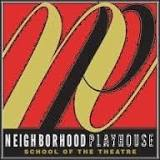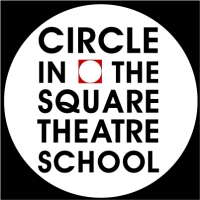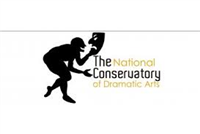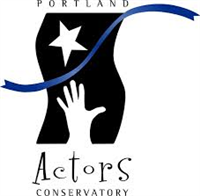What do they do?
Play parts in stage, television, radio, video, or film productions, or other settings for entertainment, information, or instruction. Interpret serious or comic role by speech, gesture, and body movement to entertain or inform audience. May dance and sing.
Also known as:
Actor, Actress, Comedian, Comic, Community Theater Actor, Ensemble Member, Entertainer, Narrator, Performer, Tour Actor, Voice Actor, Voice-Over Artist
-
-1%
Change
Ranks #44 in job growth rate110Job Openings
Ranks #15 in net job growth
Looking for colleges that offer a specific major? Use the College Match Tool to find your best-matched schools and discover your estimated Net Price!
- Bachelor's degree (50%)
- Some college, no degree (15%)
- Master's degree (13%)
- High school diploma equivalent (11%)
- Associate's degree (7%)
- Less than high school diploma (2%)
- Doctorate or Professional Degree (2%)
Most Popular Majors that prepare Actors
-
#1
-
Degrees Granted
376
-
Female Students
278
-
Male Students
98
-
Median Starting Salary
$37,200
-
-
#2
-
Degrees Granted
163
-
Female Students
110
-
Male Students
53
-
Median Starting Salary
$37,200
-
-
#3
-
Degrees Granted
14
-
Female Students
10
-
Male Students
4
-
Median Starting Salary
$37,200
-
-
#4
-
Degrees Granted
3
-
Female Students
1
-
Male Students
2
-
Median Starting Salary
$37,200
-
People in this career often have these skills:
- Reading Comprehension - Understanding written sentences and paragraphs in work-related documents.
- Speaking - Talking to others to convey information effectively.
- Active Listening - Giving full attention to what other people are saying, taking time to understand the points being made, asking questions as appropriate, and not interrupting at inappropriate times.
- Social Perceptiveness - Being aware of others' reactions and understanding why they react as they do.
People in this career often know a lot about:
- Fine Arts - Knowledge of the theory and techniques required to compose, produce, and perform works of music, dance, visual arts, drama, and sculpture.
- English Language - Knowledge of the structure and content of the English language including the meaning and spelling of words, rules of composition, and grammar.
- Communications and Media - Knowledge of media production, communication, and dissemination techniques and methods. This includes alternative ways to inform and entertain via written, oral, and visual media.
- Sociology and Anthropology - Knowledge of group behavior and dynamics, societal trends and influences, human migrations, ethnicity, cultures, and their history and origins.
People in this career often have talent in:
- Oral Expression - The ability to communicate information and ideas in speaking so others will understand.
- Oral Comprehension - The ability to listen to and understand information and ideas presented through spoken words and sentences.
- Written Comprehension - The ability to read and understand information and ideas presented in writing.
- Memorization - The ability to remember information such as words, numbers, pictures, and procedures.
- Speech Clarity - The ability to speak clearly so others can understand you.
- Originality - The ability to come up with unusual or clever ideas about a given topic or situation, or to develop creative ways to solve a problem.
- Near Vision - The ability to see details at close range (within a few feet of the observer).
People in this career often do these activities:
- Collaborate with others to prepare or perform artistic productions.
- Entertain public with comedic or dramatic performances.
- Study scripts to determine project requirements.
- Practice athletic or artistic skills.
- Audition for roles.
- Perform music for the public.
- Collaborate with others to determine technical details of productions.
- Promote products, activities, or organizations.
- Write material for artistic or entertainment purposes.
- Inform viewers, listeners, or audiences.
- Construct distinctive physical objects for artistic, functional, or commercial purposes.
This page includes data from:

 Occupation statistics: USDOL U.S. Bureau of Labor Statistics Occupational Employment Statistics
Occupation statistics: USDOL U.S. Bureau of Labor Statistics Occupational Employment Statistics
 Videos: CareerOneStop, USDOL/ETA and the Minnesota Department of Employment & Economic Development
Videos: CareerOneStop, USDOL/ETA and the Minnesota Department of Employment & Economic Development















